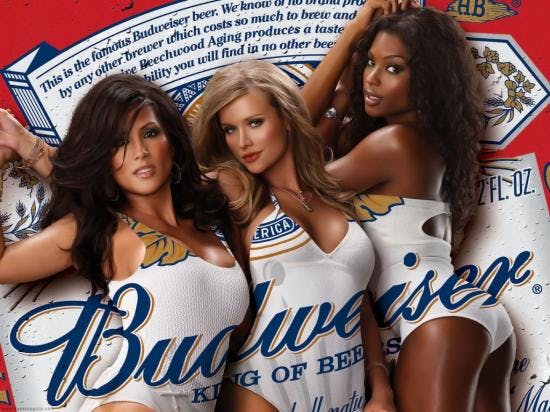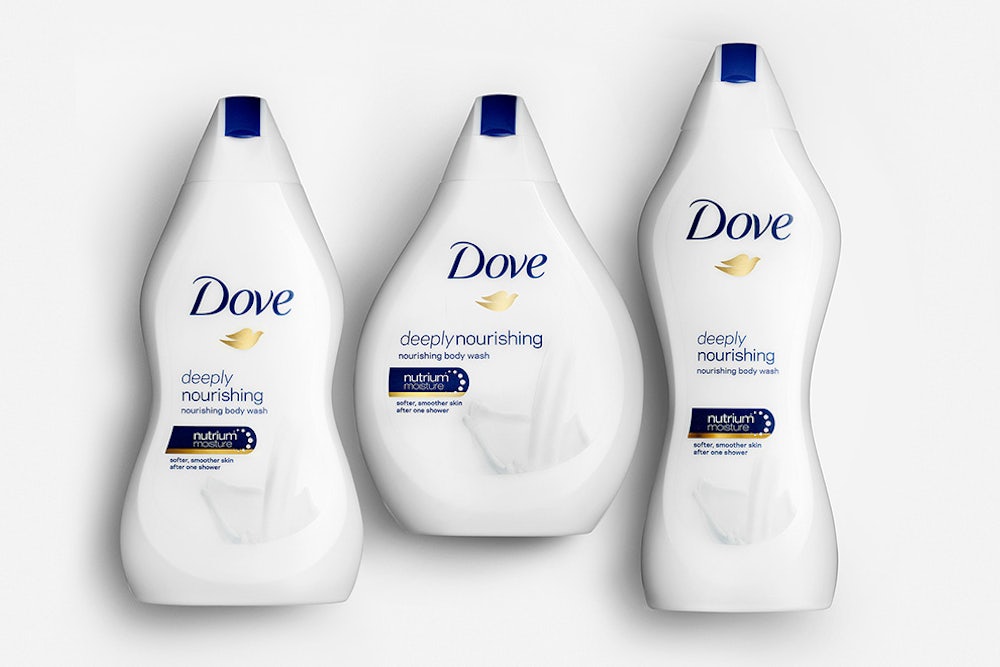Objectification is not a metaphor. It is a term you can use to describe treating or perceiving women like objects, but in advertising it involves representing women as objects, or vice versa. The beer and car industries are famous for blending the image of the product itself with the female body. For example:

In the worst examples, women are dismembered and paired with inanimate objects to create a Frankensteinian patchwork of things you might like to buy and/or fuck.
This classic advertising move siphons the perceived lesser humanity of women into a money-making enterprise, making it obviously sexist. Obviously. But on Monday, the Unilever-owned brand, Dove—which has exhorted its customers to “love” their “curves” since their “Real Beauty” campaign of 2004—took this age-old practice to new, galling heights. It debuted a line of soap containers that tries to couch blatant objectification in the language of female empowerment.
In a statement, the company announced that liberation was on its way to their paying customers by way of plastic bottles with large asses:
From curvaceous to slender, tall to petite, and whatever your skin colour, shoe size or hair type, beauty comes in a million different shapes and sizes. Our six exclusive bottle designs represent this diversity: just like women, we wanted to show that our iconic bottle can come in all shapes and sizes, too.
The internet immediately noted that six and a million are different numbers, while laughing at the weird attempt at sexiness rendered in cheap moulded plastic.
when and where do i fuck the sexy dove body bottles
— Scaachi (@Scaachi) May 8, 2017
Moreover, anybody who is not an employee of Ogilvy, the agency that came up with this campaign, understands that physical diversity among women is not meaningfully represented by differing waist-to-hip ratios on soap bottles. These bottles do not have heads, or skin colors, or ages. They reduce the body to a thin slice of synthetic ass.
Feminist discourse in this country is a mess. The word “empowerment” has no meaning except in advertising bad yoga outfits. Women documentarians “give a voice” to sex workers by taking the words out of their mouths. Women on the right think that diversity in feminism means taking anti-abortion activists into the fold. Horny men online clamor for women’s attention in replies to tweets decrying horny men online. The personal essay industrial complex insists that if a woman does something, then it is “feminist,” even if that thing is cruel or stupid.
On a day like today, however, it feels like we all stand for something, which is nihilist laughter. There is little joy like the joy in realizing that the branding experts and marketing consultants whose job it is to rob you have messed up. When a brand falls on its face trying make money out of feminist solidarity—trying to sell insecurity back to us in the guise of inclusivity by saying hi, we’ve noticed you have a different butt than other people—then we get to dust off our little-used senses of humor for a single, sweet hour before getting back in line for IUDs. Enjoy, ladies!
